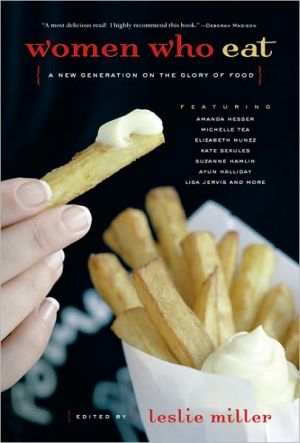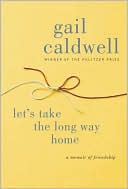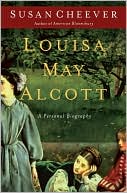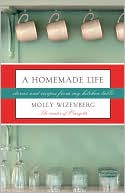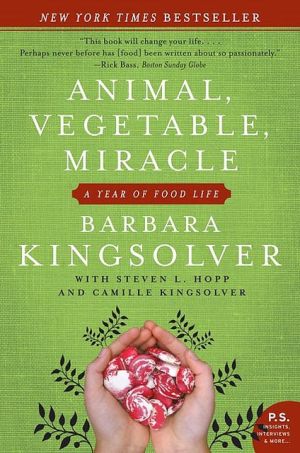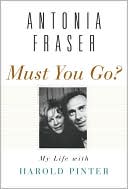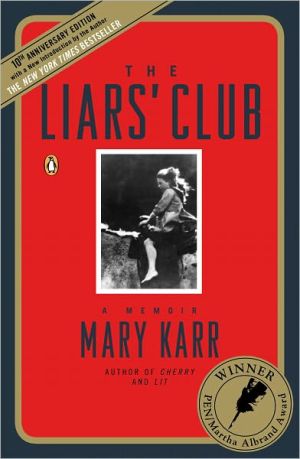Women Who Eat: A New Generation on the Glory of Food
Move over, Betty Crocker. Women are reclaiming their pots and pans, but it’s a new era in the kitchen. Today’s generation of women is putting a fresh spin on the “joy of cooking”—and eating and entertaining. Women both in and out of the culinary profession share their stories about the many ways food shapes and enhances their lives. New York Times columnist Amanda Hesser praises the joys of simple food, and Food and Wine editor Kate Sekules discusses the importance of having a restaurant...
Search in google:
Move over, Betty Crocker. Women are reclaiming their pots and pans, but it’s a new era in the kitchen. Today’s generation of women is putting a fresh spin on the “joy of cooking”—and eating and entertaining. Women both in and out of the culinary profession share their stories about the many ways food shapes and enhances their lives. New York Times columnist Amanda Hesser praises the joys of simple food, and Food and Wine editor Kate Sekules discusses the importance of having a restaurant where you’re recognized. Theresa Lust, author of Pass the Polenta, vividly remembers a childhood making sauerkraut with her grandmother, and Michelle Tea describes her working-class Polish family’s meals as “tripe, kielbasa, shellfish and beer.” One woman owns up to her culinary ineptitude in an era when being a gourmet cook is all the rage, while another remembers preferring chicken nuggets from the cafeteria to mom’s homemade vegetable biryani. Women Who Eat not only presents an illuminating look at food today, but dishes out generous helpings of great prose that are sure to titillate the palate. Recipes are included. USA Today The essays in Women Who Eat are so associated with love that reading it will send you into the kitchen or the arms of your own love, so intertwined are food and relationships. — Lynne Perri
\ USA TodayThe essays in Women Who Eat are so associated with love that reading it will send you into the kitchen or the arms of your own love, so intertwined are food and relationships. — Lynne Perri\ \ \ \ \ Publishers WeeklyAll the essays in this mixed collection serve to explode the myth that women are constant dieters, more worried about thinning their thighs than pleasing their palates, and several include recipes. Terez Rose's account of how fiercely she missed the most pedestrian American foods when doing a Peace Corps stint in Gabon offers both Mom's Egg Casserole and Terez's African Egg Casserole. The most successful pieces, like Cheryl Strayed's tale of learning to make the perfect pudding for a tapioca-loving man, hew closely to a single subject. Likewise, Lela Nargi's account of firing her therapist because she disapproved of the woman's insistence on seeing food as a problem is perfectly on point. Pooja Makhijani recalls how she traded the aloo tikis her mother packed for lunch (recipe included) for a newly arrived immigrant classmate's more acceptably American fare. Karen Eng writes about food in works of children's literature, such as Laura Ingalls Wilder's Little House books. Debra Meadow's exploration of her grandmother's mandelbrot-almond cookies that predated biscotti for most Jewish Americans-traces a love of cooking passed through generations. Hers is one of the few essays that focus on a family member (grandmothers, mothers and fathers feature heavily here) without losing its way. The impulse to reclaim food as a source of enjoyment is admirable, but the meandering tone of several of these pieces gives them the feel of a dish whipped up to satisfy hunger rather than to be savored. (Nov.) Copyright 2003 Reed Business Information.\ \ \ Library JournalDispelling the notion that all women count calories, this collection of 29 essays by food reporters, editors, authors, journalists, and zinesters extol the virtues of eating. Don't expect to find essays on celebrity chefs or postmodern food trends; these essays explore the intimate side of food that comforts, transports, or takes us home. Topics range from cooking for boyfriends and attending Baking Boot Camp to working in a Jewish-owned Italian kitchen, along with an obligatory essay on a mother eating her placenta. In her touching essay, "The Way to a Woman's Heart," Stephanie Susnjara describes her father's passion for gastronomy during an era in which women dominated the kitchen and tells how her husband, after her father's sudden death, picked up where her father left off. Entertaining and well written, this title is recommended for most cookery and women's studies.-Pauline Baughman, Multnomah Cty. Lib., Portland, OR Copyright 2003 Reed Business Information.\ \
